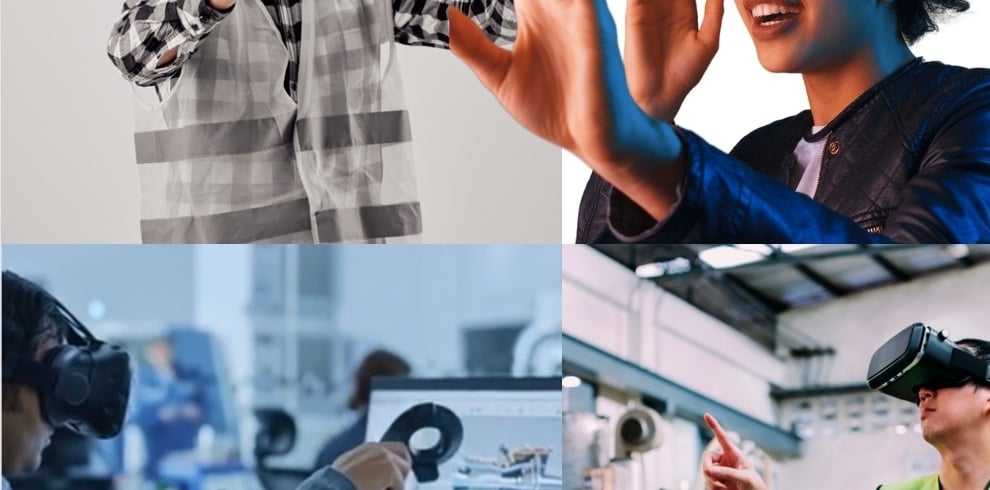The Benefits of Virtual Content in Various Industries and its Impact on Marketing
Embark on a journey exploring the transformative influence of virtual content across diverse industries. From revolutionising construction and healthcare to reshaping education, manufacturing, and retail experiences, discover how virtual content is ushering in a new era of operational efficiency, enhanced collaboration, and innovative engagement. Join us as we delve into the dynamic applications of virtual content, revealing its profound impact on various sectors and its pivotal role in shaping the future of business.
4/10/20232 min read


In the dynamic landscape of modern business, the transformative influence of virtual content transcends traditional industry boundaries, reshaping operations and interactions across a diverse spectrum. This article endeavours to explore the multifaceted applications of virtual content, emphasising its profound impact on operational efficiency, customer engagement, and innovation in various sectors.
Construction and Real Estate:
Virtual content has emerged as a game-changer for the construction and real estate industries, providing immersive experiences through the utilization of 3D models and virtual tours. Architects, contractors, and real estate professionals leverage these advanced tools to remotely showcase properties, streamline decision-making processes, and enhance collaboration among stakeholders. The outcome is not only increased operational efficiency but also an extended global reach for property presentations.
Healthcare and Medical Training:
In the healthcare sector, virtual content assumes a pivotal role in medical training and education. Through sophisticated simulations, medical professionals can practice intricate procedures in a controlled, risk-free environment, contributing significantly to skill enhancement. The applications extend beyond professional development to patient education, providing a visually rich and interactive platform for conveying complex medical information.
Education and E-Learning:
The integration of virtual content into e-learning platforms is ushering in a transformative era for education. Virtual simulations and interactive modules are creating dynamic learning experiences, particularly beneficial in fields like science, engineering, and the arts, where hands-on experiences are integral to understanding complex concepts.
Manufacturing and Engineering:
In manufacturing and engineering, virtual content serves as a powerful aid for design visualization and prototyping. Engineers can simulate and assess different design iterations within a virtual environment, accelerating the product development process and concurrently reducing costs associated with traditional prototyping methods.
Retail and E-Commerce:
The retail sector is witnessing a revolution through the integral role of virtual content. Utilizing virtual reality (VR) and augmented reality (AR) technologies, businesses create interactive and immersive experiences such as virtual try-ons, interactive product displays, and overall engaging shopping experiences. The data generated from these experiences provides valuable insights into customer preferences, aiding in tailored marketing strategies.
Tourism and Destination Marketing:
The travel and tourism industry has seamlessly incorporated virtual content into its marketing strategies. Through virtual tours, 360-degree videos, and immersive experiences, potential travelers can explore destinations virtually, influencing travel decisions positively and contributing to increased bookings and heightened visitor satisfaction.
Art Galleries, Museums, and Cultural Heritage Sites:
In the realms of art, culture, and historical preservation, virtual content is transforming how individuals experience galleries, museums, and cultural heritage sites. Immersive virtual tours bring art and history into homes globally, enhancing accessibility and contributing to the preservation and sharing of cultural heritage on a global scale.
The influence of virtual content is not confined to a singular industry; instead, it permeates diverse sectors, revolutionising processes, enhancing engagement, and fostering innovation. As businesses navigate the digital future, the strategic adoption of virtual content emerges as a key imperative for staying competitive and embracing new possibilities across industries.
